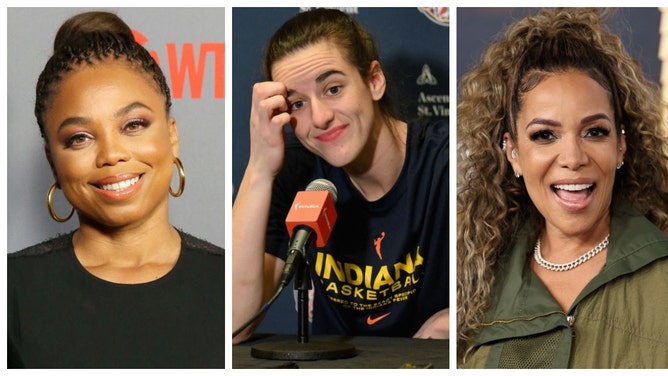Where Is The Proof Race and Sexuality Boost Caitlin Clark's Popularity? | Bobby Burack
What evidence is there that Caitlin Clark's skin color and sexuality contributed to her popularity?
Anyone?
The rabble-rousers keep saying that Clark would not be as popular if she weren't white and straight.
Jemele Hill said so this week, in an interview with the Los Angeles Times:
"We would all be very naive if we didn’t say race and her sexuality played a role in her popularity. While so many people are happy for Caitlin’s success — including the players; this has had such an enormous impact on the game — there is a part of it that is a little problematic because of what it says about the worth and the marketability…"
Host Sunny Hostin read Hill's comment on "The View" on Wednesday, agreeing that Clark is the beneficiary of white and pretty girl privilege:
"I do think that there is a thing called pretty privilege. There is a thing called white privilege. There is a thing called tall privilege, and we have to acknowledge that, and so part of it is about race, because if you think about the Brittney Griners of the world, why did she have to go to play in Russia? Because they wouldn’t pay her."
Their proof?
They don't have any.
While racial biases can be challenging to prove in a quantitative form, there are often trends and historical precedents to support such accusations.
For example, if there were a pattern in which American fans aggressively supported white athletes and ignored equally impressive black athletes – Hill and Hostin could have a case.
But a pattern of that kind does not exist.

In fact, the most popular athletes in U.S. history were/are black.
According to a YouGov poll, the 15 most popular athletes in U.S. history are all black. Muhammad Ali, Jackie Robinson, and Michael Jordan are, respectively, ranked one, two and three.
No argument here.
Specifically, Caitlin Clark falls into the category of other athletes who amassed mainstream bona fides while competing in a niche sport. The list includes Tiger Woods, Serena Williams, Floyd Mayweather, Conor McGregor, Ronda Rousey, Michael Phelps and Simone Biles.
Notice the common threads between those star athletes: greatness, personality and riveting style of play.
Race is not one of the commonalities.
The same trends are found in America's two most mainstream sports leagues, the NFL and NBA. Patrick Mahomes, LeBron James, Steph Curry, Lamar Jackson and Travis Kelce are five of the most recognizable football and basketball players in the nation. Four of them are black.
As a whole, sports fans want to see their favorite teams and athletes win and have fun watching them, regardless of their race.
What we have is an obvious disconnect between the fans and media.
Hill and Hostin saw Caitlin Clark as a straight white girl dominating black women on the court in college. The public saw Caitlin Clark as a transcendent jumpshooter with a lively personality who rewrote the history books.
The media sees skin color. The fans see game.
So, unless Hill and Hostin can provide us with proof (examples, data, trends, anything) that skin color and sexuality contributed to Clark's popularity – we ought to treat them like the uninformed bigots they look and sound like.